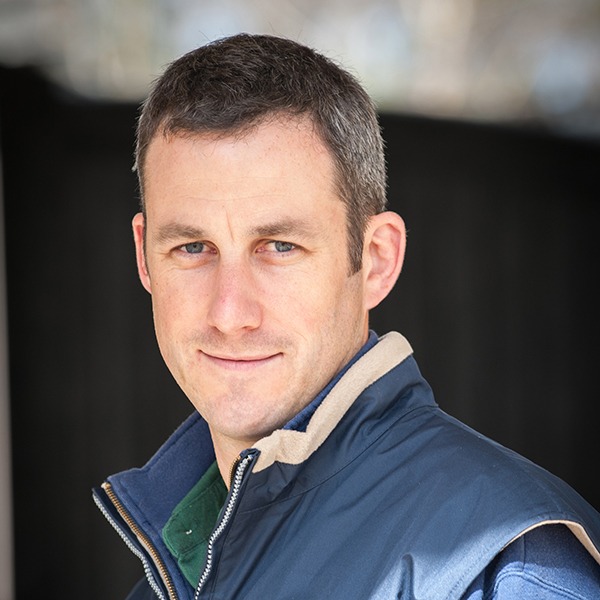PPID Diagnostics & Therapy - Does one size fit all?
Species
Equine
Contact Hours
3 Hours
Early Booking Deadline
Thu, 01 January, 1970
Registration Deadline
Thu, 01 January, 1970
Language
English
Discipline
Internal Medicine – Endocrinology, Haematology, Infectious Diseases, Parasitology & Oncology
Pathology - Clinical & Gross
Toxicology & Pharmacology
Industry Partners
Global

Veterinary Partners
Global


Recorded on: 4th August 2020
Panelists:
Harold Schott DVM, PhD, DACVIM – Michigan State Univ., USA
Dianne McFarlane DVM, PhD, MS, DACVIM – Oklahoma State Univ., USA
David Rendle BVSc, MVM, CertEM(IntMed), DECEIM, MRCVS – Rainbow Eq. Hosp., UK
Moderator:
Ben Sykes BSc, BVMS, MS, DACVIM, DECEIM, MBA, PhD – Massey University, New Zealand
CONTENT DESCRIPTION
PPID is a common disease of the aged horse. In recent years significant advances have been made in diagnostics and therapeutics yet many aspects of the disease remain controversial. Join some of the world’s best in the field to discuss some of the hot topics of this disease.
1. Mass screening for disease – is it justified?
• The accuracy of current tests in different populations (positive predictive value of tests in young horses)
• Response of thrifty horses, grey or older horses etc
• Testing the EMS horse, warranted or not?
2. What is the ideal approach to diagnosing PPID?
• Interpretation of borderline test results
• TRH stimulation test limitations
• Is a dexamethasone-suppression test worth doing?
3. Does treatment with pergolide reduce the risk of laminitis?
• Recent data on lack of effect on insulin deregulation
• Relevance of obesity/concurrent EMS in PPID cases
4. Dose titration & chronic case management
• When and how to adjust pergolide?
• Seasonal pergolide adjustments?
• Testing of horses on pergolide
• Management of refractory cases
David graduated from The University of Bristol in 2001. After 3 years in large animal practice he undertook a residency in Equine Internal Medicine at The University of Glasgow and The Liphook Equine Hospital sponsored by The Horserace Betting Levy Board. During the residency he gained The Royal College Certificate in Equine Internal Medicine and a Masters in Veterinary Medicine by research. In 2011 David completed the Diploma Examinations for the European College of Equine Internal Medicine. Since completing his residency, David has worked in private equine referral practice in the UK. He recently spent a year as a Lecturer in Equine Medicine at Charles Sturt University, Australia where he undertook a number of research projects into Equine Metabolic Syndrome and Pituitary Pars Intermedia Dysfunction. David returned to The Liphook Equine Hospital in 2012 as specialist in Equine Internal Medicine. He currently works at Rainbow Equine Hospital in Yorkshire. David has published and presented on a range of internal medicine topics but is particularly interested in equine endocrinology, gastroenterology and respiratory disease.
Ben graduated from Murdoch University in 1997. He completed an Internship at Randwick Equine Centre in 1998 followed by a residency in Equine Internal Medicine in Virginia (USA) gaining his Diplomate Registration in Equine Internal Medicine in 2004. He then spent 7 years in Finland as Head of the Veterinary department of Equine Medicine and Surgery and was also visiting Professor in Equine Medicine and Surgery in Estonia. In 2011, Ben was awarded his European Diplomate award and he has a special interest in equine gastric ulcers, with many peered review publications to his credit. He is an Associate Professor in Equine Internal Medicine at Massey University and Honorary Lecturer at the University of Liverpool in the postgraduate certificate programme.
Dr. Hal Schott earned a bachelor’s degree from Cornell in 1980 and a DVM from the Ohio State University in 1984. He worked in a private equine practice in Santa Barbara, Calif., from 1984 to 1987 and followed that with a residency and PhD program at Washington State University from 1987 to 1991. He was on the WSU faculty from 1991 to 1995 as an instructor and then an assistant professor of equine internal medicine. In 1995, he came to Michigan State University as an assistant professor and progressed to associate and then full professor. He is a Diplomate of the American College of Veterinary Internal Medicine.
His clinical interests include all types of urinary tract disease in horses, and his research focuses on fluid and electrolyte physiology, especially with prolonged endurance exercise.
Dianne McFarlane is a professor in the Physiological Sciences department at the OSU College of Veterinary Medicine. Her research interests are Aging, Age-related disease and endocrine disease.
Dr. McFarlane earned her DVM degree from the University of California, Davis in 1992. She completed a Large Animal Rotating Internship at the University of Georgia in 1993 and an ACVIM and ABVP Equine Medicine Residency at North Carolina State University in 1997. Dr. McFarlane earned her MS degree from the University of Georgia in 1992 and her PhD from the University of Prince Edward Island in 2006.
She is the Ricks Rapp Professor of Equine Musculoskeletal Research.
Veterinary Student
Online Panel Discussion
USD 35.00
Qualified Vet
Online Panel Discussion
USD 85.00
Intern/Resident (Requires proof of status)
Online Panel Discussion
USD 65.00
Vet Nurse/Vet Tech (Requires proof of status)
Online Panel Discussion
USD 65.00
If the options you are looking for are unavailable, please contact us.
No tax will be added unless you are a UK taxpayer
Choose currency at checkout


















